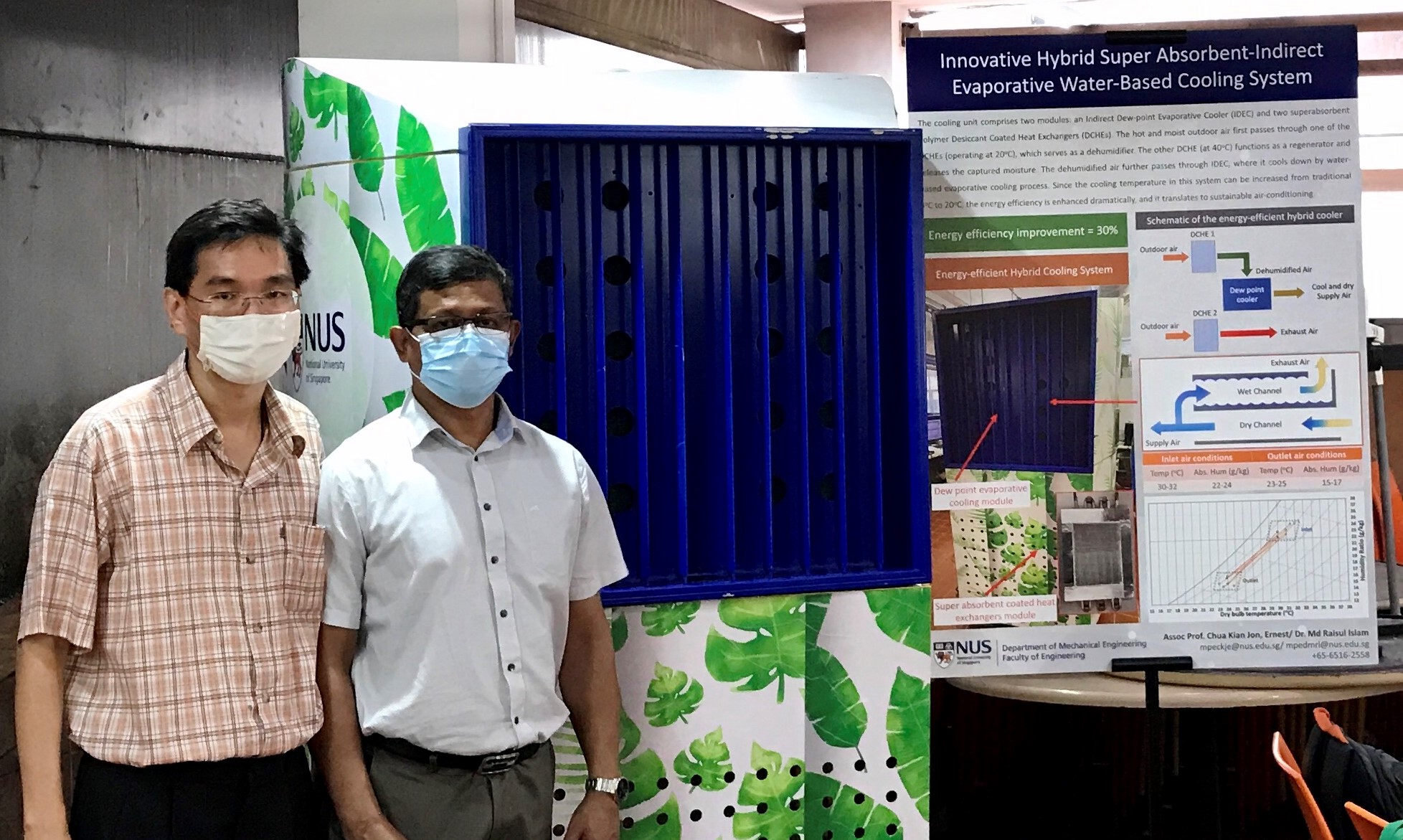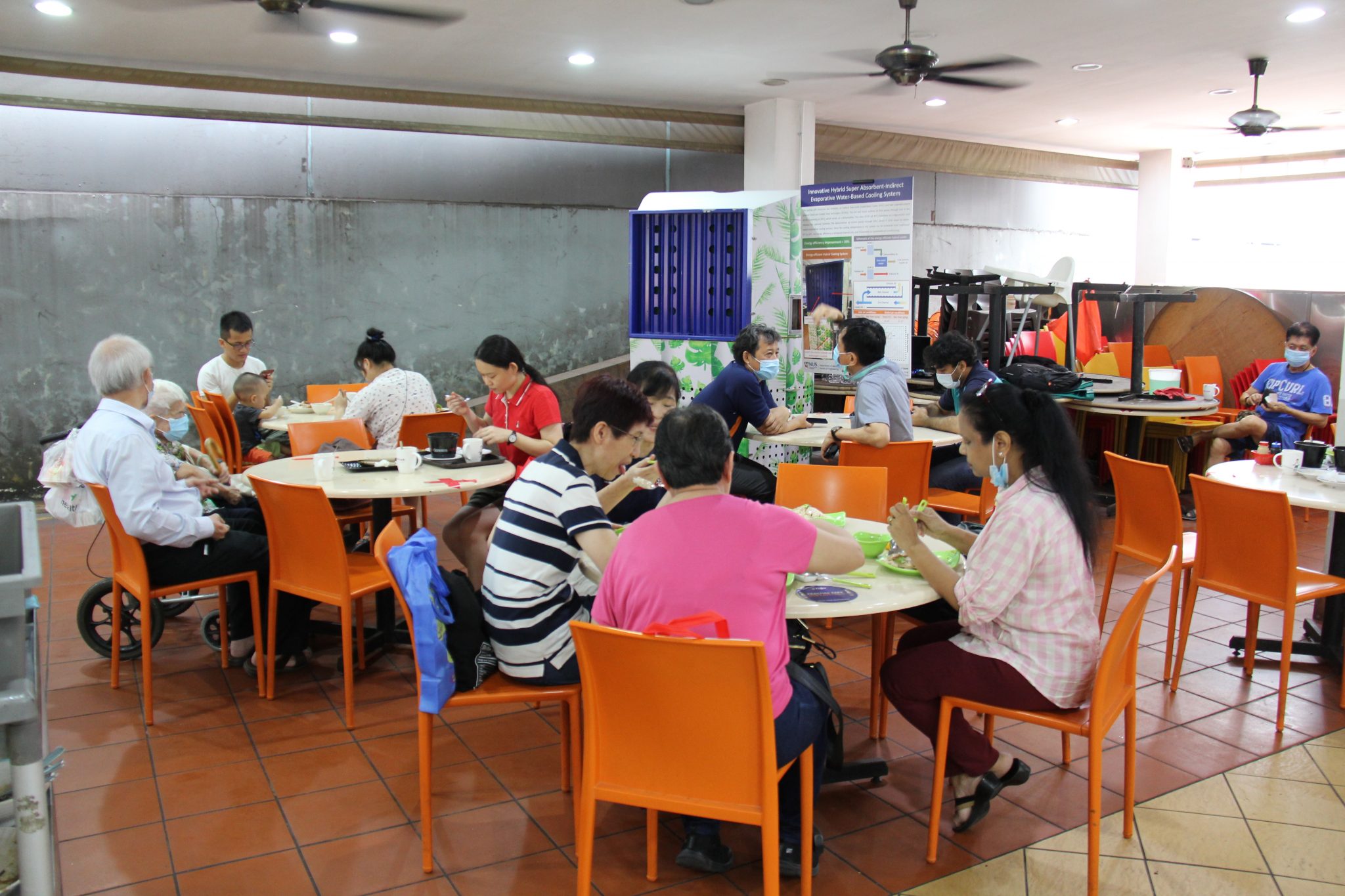
Eating al fresco can be uncomfortable in Singapore's hot and humid weather. Standard outdoor coolers such as mist fans can help with the heat, but raise humidity; whilst use of air conditioners is notoriously wasteful in energy consumption.
Associate Professor Chua Kian Jon Ernest, Dr Raisul Islam, and their team from the Department of Mechanical Engineering have designed and engineered an innovative, environmentally-friendly hybrid outdoor air conditioner (AC). About the size of a large refrigerator, the device lets diners enjoy cool yet dry air during their meals in the open.
The new AC unit was tested at an outdoor food court close to the NUS campus and can cool an area within 3.5-4m of the unit, reducing both the ambient temperature and humidity, and cutting energy consumption.
During the test, the supplied air was a pleasant 25°C and was 21 per cent dryer than the original air.

Dehumidifies and cools
The hybrid unit uses an innovative process to separate the processes of drying and cooling the air, increasing the efficiency of both. As a result, a cooling coil temperature of just 20°C is needed instead of the 6°C for regular ACs, with a significant 32 per cent improvement in energy efficiency.
To dehumidify the ambient air, it first passes through two superabsorbent polymer Desiccant Coated Heat Exchangers (DCHE). Unlike other desiccants such as silica gel which need high temperature heating to remove the moisture they adsorb, the DCHEs can continuously operate and regenerate at close to room temperature.
The dry air is then cooled by passing through an Indirect Dew-Point Evaporative Cooler (IDEC), which uses water-based evaporative cooling. Because the moisture in the air has already been reduced, less energy is needed to cool it than for ambient air.
The research team behind the hybrid AC hope to soon see the units widely deployed, bringing energy-efficient and eco-friendly al fresco dining for the comfort of more diners.





